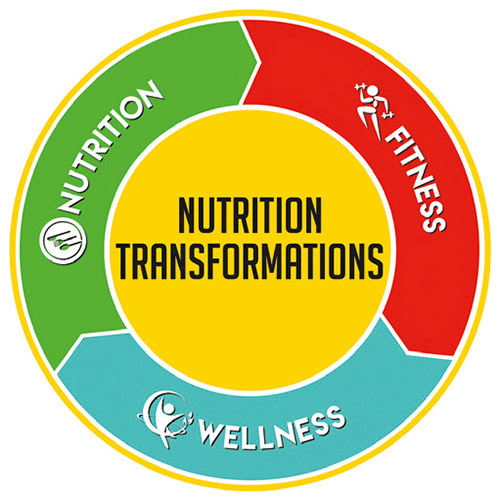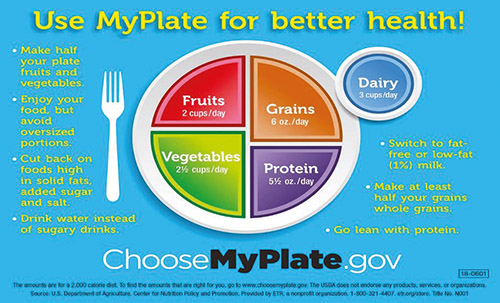
Dear Jenn,
I’ve been on many weight-loss diets. I’m an overweight middle-aged man, have a family and work hard. Unfortunately, I tend to be a yo-yo dieter. I lose a decent amount of weight but gain it back quickly. It is a never-ending cycle. Luckily, I’m better at being a lawyer. I’m considering trying a “ketogenic type of diet.” However, there are mixed reviews. A friend of mine lost 25 pounds and claims to feel great. What’s your take on this type of diet?
Sincerely,
Ketogenic Diet Inquirer
Dear Ketogenic Diet Inquirer,
Thank you for writing. Yo-Yo dieting is very common and can be extremely frustrating. There are many opinions regarding low-carbohydrate diets such as ketogenic, Atkins and Paleo diets. Let’s explore!

Our diet is made up of macronutrients and micronutrients. Both types of nutrients are necessary. Understanding the function of the nutrients in your diet can help you decide what type of diet is best.
Macronutrients: Required in large amounts from the diet:
1. Carbohydrates: Bread, pasta, rice, potato, quinoa (starches), fruits and vegetables (fiber source) as well as simple sugars like honey, jam, sugar, provide glucose, which is converted to energy to support body function and physical activity.
2. Protein: Eggs, poultry, fish and meat help the body repair and make new cells. It is important for development and growth in children, teens and pregnant women.
3. Fat: Vegetable oil (olive, safflower, canola, etc.), avocado, butter, margarine, salad dressings provide an energy source, support cell function, protect organs from injury and keep the body warm, involved in absorption of certain nutrients and produce hormones.
Micronutrients: Required in small amounts from the diet. Different foods offer a varied intake of essential micronutrients.
1. Vitamins: A, C, D, E, K and the B complex (B1-thiamin, B2-riboflavin, B3-niacin, B5-pantothenic acid, B7-biotin, B6-pyridoxine, B12- cyanocobalamin and B9-folate). All have different functions in our bodies. Some help resist infections and others keep nerves healthy. Some are involved in energy release from foods or help with blood clotting.
2. Minerals: Calcium, phosphorus, potassium, sodium, chloride, magnesium, iron, zinc, sulfur, cobalt, copper, fluoride, manganese, and selenium. Minerals build strong bones and teeth. They control body fluid inside and outside cells, turn food into energy, synthesize hormones and enzymes, muscle function (heart), brain and support nervous system functioning.
The Ketogenic Diet Philosophy
The ketogenic diet (keto) is based on depleting the body of carbohydrates, which are the primary source of energy for the cells. Removing carbohydrates from the diet forces the body to burn fat and protein as an alternative energy source for body function, thereby maximizing weight loss. Sounds good?
The Pros: According to WebMD, people use a ketogenic diet most often to lose weight, but it can help manage certain medical conditions. It may help people with heart disease, certain brain diseases, and even acne, but there needs to be more research in those areas. https://www.webmd.com/diet/ss/slideshow-ketogenic-diet
Other studies noted a reversal of signs of metabolic syndrome and reduction or elimination of insulin for type 2 diabetes, reduced inflammation, improved epigenetic profiles (physical interaction of DNA/chromatin affecting genes) and a positive effect on the microbiome (“bugs” in the small and large intestine. In a healthy body the pathological and symbiotic microbiota coexist without problem). Also noted was a reduction in blood triglycerides, LDL cholesterol (bad cholesterol), while an increase in HDLs (good cholesterol).
The Cons: According to Harvard Health Medical School, the keto diet can cause headaches (lack of glucose), low blood pressure, kidney stones, constipation (lack of fiber due to low intake of carbs) or diarrhea (following a high-fat diet causes the liver to release extra bile, a natural laxative), nutrient deficiencies and an increase in heart disease.
Amy Gorin, MS, RDN writes in Everyday Health: “Keto may cause social isolation (depression and mood swings due to the lower rate of neurogenesis, new brain cells formation), disordered eating (ignoring carb cravings causes an unhealthy relationships with foods such as intensifying obsessive thoughts around food).”
According to Diet Doctor (a dietary guide for physicians), keto is not safe for those with any conditions involving the pancreas, liver, thyroid or gallbladder. It can exacerbate these conditions.
According to Healthsource, keto diets should only be used for a maximum of six months to prevent negative health side effects.
Ketosis: a metabolic state characterized by raised levels of ketone bodies in the body tissues. This is a pathological condition that may occur with diabetes, or from a diet low in carbohydrates as the body tries to utilize fat as an energy source. The pathway to convert fat into energy causes toxicity. In addition, ketosis can cause body odor. Breath, urine and the body may give off an unpleasant odor like nail polish remover, rotten fruit or alcohol. (May not be wise if you are dating.)
The popular low-carb diets such as Atkins or Paleo modify a true keto diet. But they come with risks if you overdo it on fats and proteins and lay off the carbs. Theories about short-term low-carb diet success include lower appetite because fat burns slower than carbs. Eating a restrictive diet, no matter what the plan, is difficult to sustain. Once you resume a normal diet, the weight will likely be gained back.
USDA Food Recommendations-Guidelines for Americans
You may be familiar with the “Food Pyramid” or “MyPyramid,” but the latest diagram is called “MyPlate.” The dietary recommendations are updated every five years with current research and health data. This diet includes variety and all food groups.
The Mediterranean Diet-An Alternative
The Mediterranean Diet emphasizes plant-based foods and healthy fats. Research shows this diet can reduce the risk of cardiovascular disease, and many other chronic conditions. Below are foods to include:
Lots of vegetables, fruits, beans, lentils and nuts.
Lots of whole grains, whole wheat bread, brown rice.
Plenty of extra-virgin olive oil (EVOO).
A moderate amount of fish rich is omega-3 fatty acids
A moderate amount of cheese, yogurt and eggs.
Little or no red meat, choosing poultry instead.
Little or no sweets, sugary drinks or butter.
Moderate amounts of wine with meals (but if you don’t already drink, don’t start)
The Mediterranean Diet focuses on overall eating patterns rather than strict formula calculations. The diet is flexible and can be tailored to personal needs.
In my Nutrition Transformations practice we emphasize the following:
1. Weight loss diets are for life. Even after reaching your goal weight, you must continue the diet.
2. Diets must be nutritious, balanced, calorically wise, and varied in order to avoid cravings, nutrient deficiencies and boredom.
3. Focused on your goals, be patient with the process, appreciate accomplishments and keep it up!
4. Strategize. Obstacles can challenge the best of us. Emotional eating, cultural rituals that incorporate food. You’ve got to learn to swim through these rough diet challenges.
5. Exercise boosts metabolism and is a teammate with weight loss and maintenance. There is no escaping exercise.
Conclusion
Consuming a healthy, balanced diet that is varied is the best way to include all essential nutrients in your diet. Cutting out a food group can lead to cravings, nutrient deficiencies and negative health effects, and are not sustainable. Many people go on fad diets to lose weight, but in the long run, gain their weight back, if not more weight than they began with.
If you or a loved one would like to lose weight, improve overall health and have an increase in energy the “safe, non- toxic way,” call Nutrition Transformations. We will help you lose weight and succeed with long-term sustainable results. Weight-loss medication is available for those who might need to jump-start the process. Give us a call today, don’t delay…
Yours in good health, Jenn www.nu-transform.com 718-644-1387
By Jennifer B. Chapler MS RD CDN













